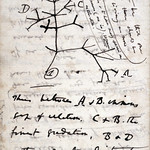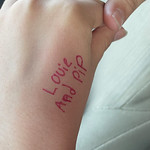Duly Noted

Extend Your Mind through Connected Notes
Better thinking makes you a better person. And few things extend your mind as quickly and powerfully as the humble note. Notes let you fulfill commitments, manage complicated projects, and make your ideas real. Digital notes take you even further. By using the right tools and a bit of discipline, you can cultivate a “personal knowledge garden” where your thinking will blossom.
Who Should Read This Book?
Anyone and everyone who wants to get control of their notes to generate better ideas, learning, and actions. Duly Noted is superb for students, academics, business people, technicians, writers, UX people, managers, leaders—virtually anyone who can benefit from taking and managing notes.
Takeaways
- Learn best-practice note-taking principles so you can take more concise notes.
- Connect your notes to one another to create a personal network of ideas (your own personal “knowledge garden”).
- Capture ideas before you lose them.
- Organize your notes so that you can find and make sense of them later.
- Learn how connected notes can spark insight and lead to new ideas and learning.
- Explore how notes can help you collaborate with other minds, including artificial ones.
- Learn how to use Obsidian, a powerful digital note-taking tool.
- Follow the how-to exercises to lead you through the note-taking maze.
Better thinking makes you a better person. And few things extend your mind as quickly and powerfully as the humble note. Notes let you fulfill commitments, manage complicated projects, and make your ideas real. Digital notes take you even further. By using the right tools and a bit of discipline, you can cultivate a “personal knowledge garden” where your thinking will blossom.
Who Should Read This Book?
Anyone and everyone who wants to get control of their notes to generate better ideas, learning, and actions. Duly Noted is superb for students, academics, business people, technicians, writers, UX people, managers, leaders—virtually anyone who can benefit from taking and managing notes.
Takeaways
- Learn best-practice note-taking principles so you can take more concise notes.
- Connect your notes to one another to create a personal network of ideas (your own personal “knowledge garden”).
- Capture ideas before you lose them.
- Organize your notes so that you can find and make sense of them later.
- Learn how connected notes can spark insight and lead to new ideas and learning.
- Explore how notes can help you collaborate with other minds, including artificial ones.
- Learn how to use Obsidian, a powerful digital note-taking tool.
- Follow the how-to exercises to lead you through the note-taking maze.
Testimonials
“Duly Noted is the definitive book on taking digital notes and creating a modern, methodology-light system for thinking deeply.”
—Nicole van der Hoeven, YouTuber and Senior Developer Advocate, Grafana Labs
“The best introduction to information gardening!”
—Mark Bernstein, designer of Tinderbox
“In an age of information overload, Duly Noted is a perfectly pitched guide to the principles and practices of connected thinking and tending to your personal knowledge garden.”
—Andy Polaine, leadership coach and co-author of Service Design: From Insight to Implementation
“An excellent resource for practicing a vital skill, Duly Noted clearly and succinctly presents our options for developing our ideas in today’s increasingly digital age.”
—Kourosh Dini, MD, author of Taking Smart Notes with DEVONthink
“A clear, useful and informative guide to turning your untamed thoughts—the wilderness of your mind—into a beautiful, organized, well-maintained garden.”
—Dave Gray, co-author of Gamestorming, founder of the School of the Possible
“Arango has written a comprehensive guide to the brave new world of digital note-taking. And what is that? Nothing less than the path to new ideas, powerful insights, and deep understanding.”
—Karl Fast, Ph.D., co-author of Figure It Out: Getting from Information to Understanding
Table of Contents
Foreword by Howard Rheingold
Chapter 1: Notes Are for Thinking
Chapter 2: Make Short Notes
Chapter 3: Connect Your Notes
Chapter 4: Plan for a Knowledge Garden
Chapter 5: Don’t Let Ideas Get Away
Chapter 6: Put Everything in Its Right Place
Chapter 7: Spark Insights
Chapter 8: Share Your Thinking
Chapter 9: Tend the Garden
Chapter 10: Think with Other Minds
Sample Chapter
This is a sample chapter from Jorge Arango’s book Duly Noted: Extend Your Mind Through Connected Notes. 2024, Rosenfeld Media.
Chapter 1: Notes Are for Thinking
When I was a boy, the beginning of school was one of my favorite times of the year. One day always stood out: when my mom took me to buy stationery. I loved getting new pens, pencils, and notebooks. A fresh notebook held the promise of clarity, order, and better grades. I mostly used Mead Trapper Keepers, a popular brand of loose-leaf binders. They represent how I managed notes as a kid: I’d write down what I heard during class and stash pages in that subject’s section, in chronological order. While studying, I’d revisit those notes. Occasionally, I’d discard old ones to make room.
By the end of the school year, I had a binder full of transcripts. They’d served their purpose, so I could toss them. Next year would bring new teachers, new classes, and new notebooks. I seldom revisited old notes. This basic approach was the start of my note-taking life. I’ve since learned that notes can be more than a means for capture and recall: they’re also a medium for thinking.










